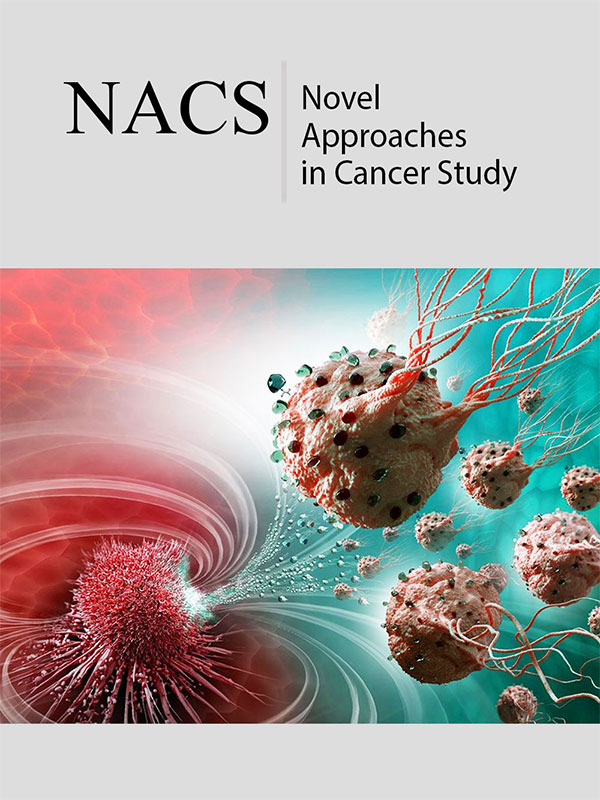- Submissions

Abstract
Novel Approaches in Cancer Study
The Role of Oxidative Stress in Cancer
-
Open or CloseKrishna Dasari1, Chikezie O Madu2 and Yi Lu3*
1Departments of Biology and Advanced Placement Biology, White Station High School, Memphis, TN, USA, Email: kdasari2002@gmail.com, USA
2Departments of Biology and Advanced Placement Biology, White Station High School, Memphis, TN, USA, Email: maduco@scsk12.org, USA
3Department of Pathology and Laboratory Medicine, University of Tennessee Health Science Center, Memphis, TN, USA, Email: ylu@uthsc.edu, USA
*Corresponding author:Yi Lu, Department of Pathology and Laboratory Medicine, University of Tennessee Health Science Center, Cancer Research Building, Room 258, 19 South Manassas Street, Memphis, TN 38163, USA, Email: ylu@uthsc. edu
Submission: March 10, 2020 Published: March 19, 2020

ISSN:2637-773XVolume4 Issue2
Abstract
Oxidative stress has increasingly been considered a factor in numerous diseases and cancers because of its extensive presence throughout the body. Reactive Oxygen Species (ROS), generated continuously from oxidative phosphorylation and received from various exogenous sources, are constantly used as a key molecule for signal transduction, but under conditions of oxidative stress, when they can no longer be suppressed, they have the potential to damage the cell’s DNA. In many cases, repair mechanisms mitigate the damage, and if the damage becomes irreparable, then the cell will undergo apoptosis. In rare cases, though, DNA can get damaged to a point where the cell becomes cancerous and can eventually form a tumor. While ROS often take a significant amount of time to accumulate, once they have done so and are unable to be suppressed by cellular countermeasures, it is very likely for DNA damage to occur, and in cancerous cells, they actually enhance rapid proliferation, chronic inflammation, metastasis, and angiogenesis. This is why it is necessary to boost or introduce cellular countermeasures to mitigate the dangers of ROS. Current research on oxidative stress is mainly focusing on the benefits of antioxidants, which are commonly used by the cell to reduce ROS, and triggering apoptosis in tumors through enhanced oxidative stress conditions. This review will discuss the role of oxidative stress in tumorigenesis and cancer proliferation as well as the possible treatments, especially antioxidants and ROS-inducing drugs.
 a Creative Commons Attribution 4.0 International License. Based on a work at www.crimsonpublishers.com.
Best viewed in
a Creative Commons Attribution 4.0 International License. Based on a work at www.crimsonpublishers.com.
Best viewed in 







.jpg)






























 Editorial Board Registrations
Editorial Board Registrations Submit your Article
Submit your Article Refer a Friend
Refer a Friend Advertise With Us
Advertise With Us
.jpg)






.jpg)














.bmp)
.jpg)
.png)
.jpg)










.jpg)






.png)

.png)



.png)






